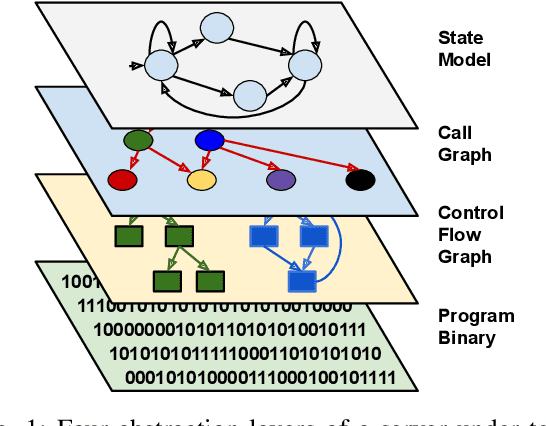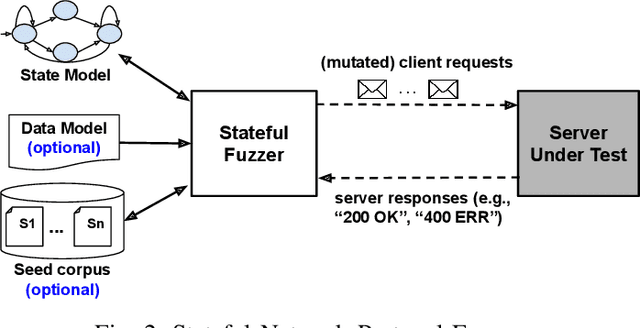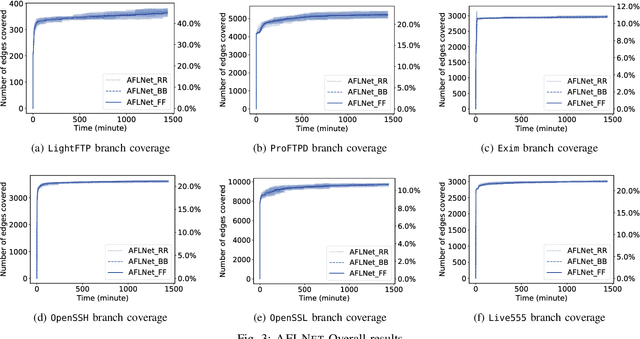Gidon Ernst
State Selection Algorithms and Their Impact on The Performance of Stateful Network Protocol Fuzzing
Jan 07, 2022



Abstract:The statefulness property of network protocol implementations poses a unique challenge for testing and verification techniques, including Fuzzing. Stateful fuzzers tackle this challenge by leveraging state models to partition the state space and assist the test generation process. Since not all states are equally important and fuzzing campaigns have time limits, fuzzers need effective state selection algorithms to prioritize progressive states over others. Several state selection algorithms have been proposed but they were implemented and evaluated separately on different platforms, making it hard to achieve conclusive findings. In this work, we evaluate an extensive set of state selection algorithms on the same fuzzing platform that is AFLNet, a state-of-the-art fuzzer for network servers. The algorithm set includes existing ones supported by AFLNet and our novel and principled algorithm called AFLNetLegion. The experimental results on the ProFuzzBench benchmark show that (i) the existing state selection algorithms of AFLNet achieve very similar code coverage, (ii) AFLNetLegion clearly outperforms these algorithms in selected case studies, but (iii) the overall improvement appears insignificant. These are unexpected yet interesting findings. We identify problems and share insights that could open opportunities for future research on this topic.
Legion: Best-First Concolic Testing
Feb 15, 2020

Abstract:Legion is a grey-box concolic tool that aims to balance the complementary nature of fuzzing and symbolic execution to achieve the best of both worlds. It proposes a variation of Monte Carlo tree search (MCTS) that formulates program exploration as sequential decisionmaking under uncertainty guided by the best-first search strategy. It relies on approximate path-preserving fuzzing, a novel instance of constrained random testing, which quickly generates many diverse inputs that likely target program parts of interest. In Test-Comp 2020, the prototype performed within 90% of the best score in 9 of 22 categories.
 Add to Chrome
Add to Chrome Add to Firefox
Add to Firefox Add to Edge
Add to Edge